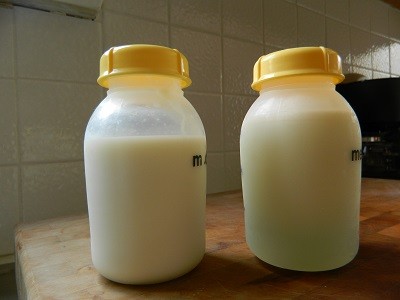
 Breast milk and superbugs. Scientists have found that a group of carbohydrates found in breastmilk have significant bacteria-fighting properties, a discovery which could lead to better drugs to fight infection and disease.
Breast milk and superbugs. Scientists have found that a group of carbohydrates found in breastmilk have significant bacteria-fighting properties, a discovery which could lead to better drugs to fight infection and disease.
Over the past century, antimicrobial medicine has recouped tremendous success in the development of disease-fighting antibiotics, saving hundreds of millions of lives by stopping deadly illnesses like tuberculosis and bacterial meningitis in their tracks. From being a medical miracle, however, antibiotics have now become a point of concern, as many previously conquered diseases have reemerged in the form of superbugs, infections resistant to commonly used antibiotics like penicillin.
As a result, scientists are now scrambling to come up with new classes of antimicrobial drugs to combat disease-causing bacteria, viruses, parasites and fungi. One source for inspiration has been human breastmilk, which along with providing nutrition to newborns gives them an immune system boost, helping to protect them against a range of viral and bacterial infections.
The bulk of that research has been focused on isolating proteins in breast milk that fight off and kill microbial agents, but there’s another class of molecules that deserves attention, say researchers at Vanderbilt University in Nashville, Tennessee.
“For most of the last century, biochemists have argued that proteins are most important and sugars are an afterthought,” says Steven Townsend, assistant professor of chemistry at Vanderbilt, and co-author of a new study in the journal Infectious Diseases, in a press release. “This is the first example of generalized, antimicrobial activity on the part of the carbohydrates in human milk.”
Researchers isolated human milk sugar compounds called oligosaccharides and exposed them to the common bacteria, Group B Streptococcus, finding that the oligosaccharides either killed the bacteria directly or broke down its microbial biofilm, making it more vulnerable to attack.
Breast milk and superbugs: a “one, two punch…”
“Our results show that these sugars have a one-two punch,” said Townsend. “First, they sensitize the target bacteria and then they kill them. Biologist sometimes call this ‘synthetic lethality’ and there is a major push to develop new antimicrobial drugs with this capability.”
The researchers’ results were recently presented at the annual meeting of the American Chemical Society in Washington, DC.
The World Health Organization has called antimicrobial resistance an “increasingly serious threat to global public health,” reporting that an estimated 480,000 people worldwide develop multi-drug resistant forms of tuberculosis every year and that drug resistance is beginning to impact both HIV treatment and the fight against malaria.
“Without effective antimicrobials for prevention and treatment of infections, medical procedures such as organ transplantation, cancer chemotherapy, diabetes management and major surgery (for example, caesarean sections or hip replacements) become very high risk,” says the WHO in a statement.
In Canada, the federal government has developed an integrated surveillance program to monitor and support efforts to combat antimicrobial resistance. In May of this year, Health Canada announced new rules for the agriculture industry aimed at restricting the use of veterinary drugs for food-producing animals. About 80 per cent of medically important antimicrobials sold in Canada are used in livestock.
Leave a Reply
You must be logged in to post a comment.




 Share
Share Tweet
Tweet Share
Share




Comment